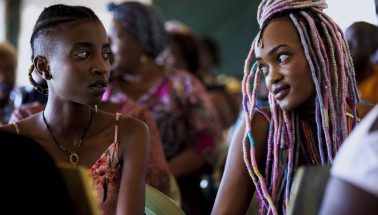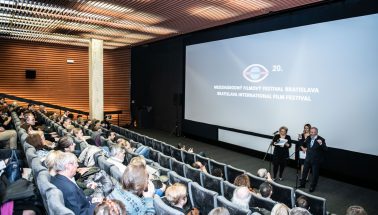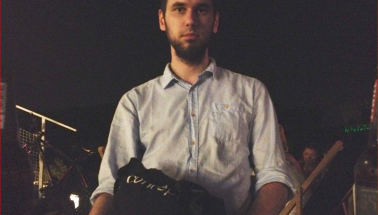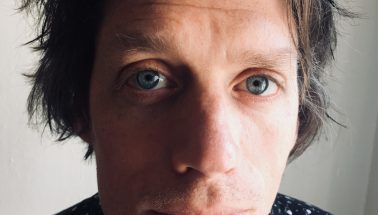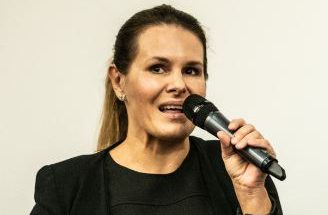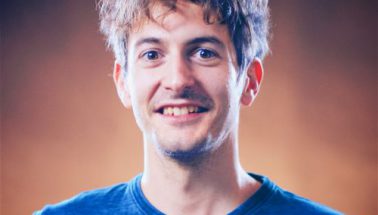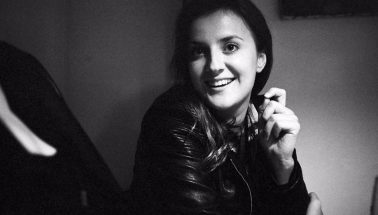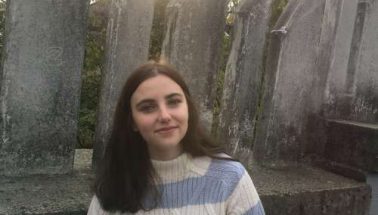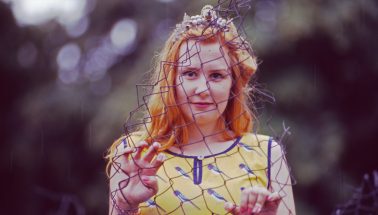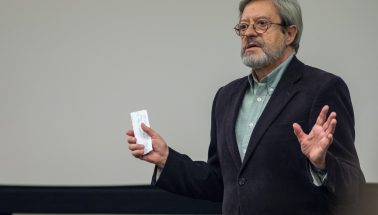Interview
SG: The main theme of the 19th edition of the Bratislava International Film Festival is film acting. In your film All That She Wants (2007), which has just screened as a part of your profile section at the Bratislava IFF, you use actors almost as models, similarly to Robert Bresson’s “actor-model” technique. Could you tell me more about the process of finding your actors and how you shaped them into the characters you wanted them to be?
DC: This film is a very specific example because it is completely inspired by my cinephilia. I was a film critic from 1995 to 2005. And this film was shot in 2007. I had ten years of watching films behind me and I had one million dollars to make this film. So I was like – OK, I have to put there everything I love. And I was totally into non-actors. Because, come on, why have stars. I was eager to fight with all those acting tics. So it is nice that you said they looked like models. This slowness, rhythm and black and white was totally inspired by Béla Tarr, Robert Bresson and my favourite filmmakers. Now, ten years later, I am much more myself, with my own identity and I do not copy.
SG: In terms of film quantity, you are like a Canadian version of Woody Allen. How come you are able to make films that fast?
DC: Well, people say I am prolific, but it really depends. I am not an ambitious person. I think I am just somebody who wants to make films. Sometimes I’m going to make a one million dollar film and then I switch to a very small budget film. A Skin So Soft is my tenth film and I made it for 45,000 euro. There is a lot of directors that grow older and always want to make bigger and bigger productions because they are ambitious. I just see my work as a brick wall and every brick is a film. Sometimes it is a small brick, sometimes it is a bigger brick. So that is why I am not afraid to just start making another film, even without the script, just start with nothing but an idea.
SG: Can you imagine creating series or 3D Hollywood productions – just for fun, just as a form of experiment?
DC: I don’t think so. Where I live, I am considered a marginal filmmaker. People respect me because I travel all around the world with my films, but I don’t make money and people don’t come to see my films. Well, they will never give me enough money for that so therefore I am not dreaming, I am not imagining I’d make a huge Hollywood film. I am just doing my small films and I am fine.
SG: You are very skilled in building specific tension in narration as well as in atmosphere gradation. This applies both for your short and feature films. Still, is there a form you like better? Do you prefer telling a story with a short or with a feature form?
DC: Well, I’ve made shorts, but they were kind of accidental. It started when I was proposed to make a short film. And then there is this small bizarre film that I made in winter and we made it in two days, because we were bored. But when you are older and you write a script, writing short stories just doesn’t really attract you anymore. I don’t think I am going to make shorts again. Even though I like the short film platform very much. But when you start writing, it is really difficult to finish after 8 minutes.
SG: You are going to introduce four films at the Bratislava IFF – All That She Wants, A Skin So Soft, Bestiaire and Curling. If you could choose one, which one would you recommend?
I think I would recommend Curling.
Saša Gabrižová

